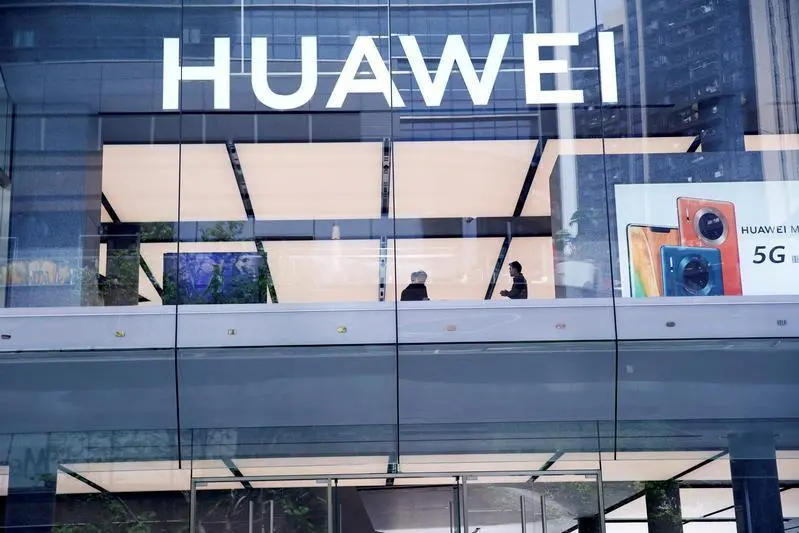PHOTO
SHENZHEN, China - Chinese tech giant Huawei reported hefty jumps in first-half revenue and net profit on Thursday, with smartphone sales robust and its smart car components business also doing well despite U.S. sanctions.
Net profit for January to June climbed 18% to 54.9 billion yuan ($7.7 billion) on a 34.3% rise in revenue to 417.5 billion yuan. It was the company's highest revenue for a first half since the same period in 2020.
Huawei did not give an earnings breakdown for individual units, but a spokesperson said its mainstay consumer business, which includes smartphones and PCs, as well as its smart car components unit, performed strongly.
Data from research firm Canalys shows Huawei shipped 22.2 million smartphones in mainland China during the first half, a 55% increase from a year earlier.
Huawei jumped back into the 5G premium smartphone market last year with its Mate 60 series and this year with its high-end P series phones - though most of these sales remain confined to its home market.
The launches have been celebrated in China as a triumph over U.S. sanctions that have, since 2019, prevented the company from accessing advanced U.S. chips and other technology.
Washington sees Huawei as a national security risk - a charge that the company denies. U.S. sanctions have since broadened out to encompass export bans on highly advanced U.S. chips to all Chinese firms with Washington seeking to impede advances in technology for China's military.
Over the last four years, Huawei has also seen remarkable growth for its Intelligent Automotive Solution unit, which wants to become the dominant supplier of software and components for smart electric vehicles and has clinched deals with many automakers.
Huawei's information and communications tech infrastructure, cloud, and digital power divisions put in a steady performance, the spokesperson said, adding that first-half profits were not boosted by the sale of businesses or assets as they were in the same period last year.
($1 = 7.1165 Chinese yuan)
(Reporting by David Kirton; Editing by Edwina Gibbs)




















